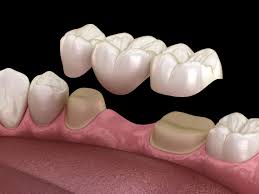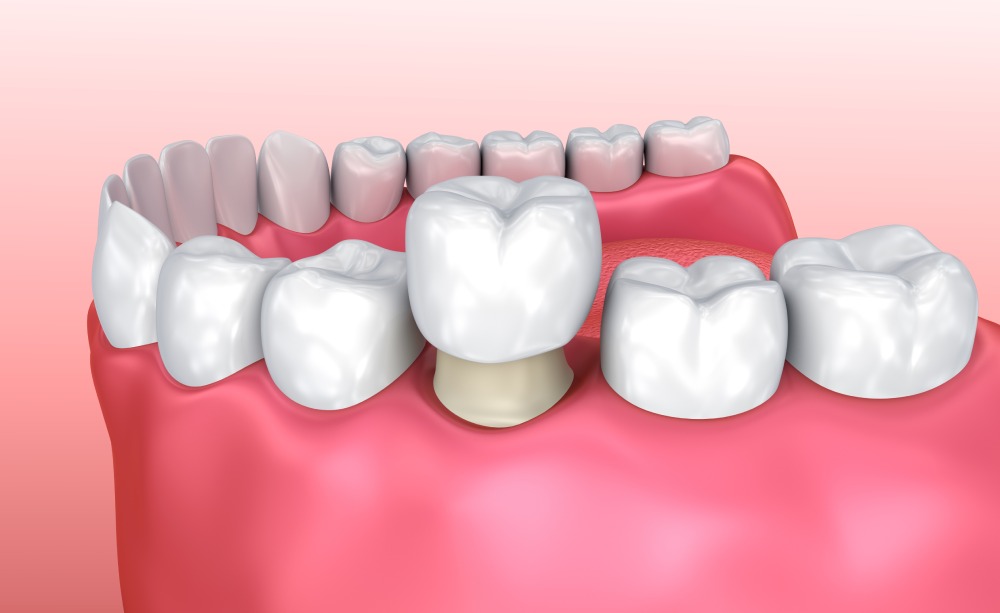#2,25 12th Avenue South Cranbrook, British Columbia, V1C 2R8, Canada | Posted on | Health-beauty
When is a Dental Crown Considered to be Necessary?
CONTENT WRITER | Posted on
A dental crown is used to cover the natural tooth structure, provide support for the tooth, and improve function. It is commonly placed after a root canal treatment or when it has already been determined that a tooth needs to be extracted. The patient should have no problem with chewing food, speaking properly, or avoiding contact with toxins. A crown might also be needed if there are food particles stuck under the teeth that would otherwise stain them.
A dental crown is considered necessary when you have severe decay around your teeth needing immediate attention. If you are an adult who smokes or drinks alcohol frequently, you should never delay having dental work done because it will only make it worse in the long run.
.jpeg)
0
0 Comment
| Posted on
Dental crowns with a composite resin covering.
A dental crown is a "cap" of hard material, usually metal-based, that covers the top of a tooth. They can be affixed to the tooth in one or multiple layers and are often used where natural tooth structure is damaged or missing due to decay, trauma or other reasons. In some cases when teeth have been extensively affected by gum disease and loss of bone substance they may need to be removed from the mouth altogether. There are different types of dental crowns for different purposes; for example partial versus full coverage which includes restoration work on teeth.

0
0 Comment
| Posted on
Dental crown is a cap, shaped in a tooth and place over a damaged tooth to cover the tooth. It is used to improve the appearance the size ,shape or the strength of the tooth.
There are lots of reason for which they are necessary -
1. If you have a weak tooth.
2. A part of it cracked or worn.
3. Protecting from decay.
4. Discolored teeth.
5. And if you have teeth and cap is used to make it in a shape.
.jpeg)
0
0 Comment
| Posted on
Dantel is a big problem it is a high quality problem believe it is of the utmost importance for you to be professionally cared for while receiving endodontic treatment. From the moment that you call his office, through the time of your treatment and aftercare, the doctor and his team will make you feel welcome and will ensure that your needs are met.

0
0 Comment
| Posted on
A dental crown, often referred to as a "dental cap," becomes necessary in various situations when a tooth requires significant structural support and restoration. This dental restoration procedure, which involves covering the entire tooth, is typically recommended under the following circumstances, making it relevant to the question of when a dental crown is considered necessary:
-
Large Cavity: When a tooth has a substantial cavity, usually too extensive to be repaired with a simple filling, a dental crown is considered necessary. It provides the necessary reinforcement to the tooth structure.
-
Weak or Cracked Tooth: Teeth that are weakened or cracked due to trauma, decay, or wear and tear require the protection and strength that a dental crown can provide.
-
Broken Tooth: In cases where a tooth is broken, either due to an injury or dental issues, a dental crown is necessary to restore the tooth's integrity and function.
-
Dental Implant: Dental crowns are essential when restoring a dental implant, as they are placed atop the implant to replace missing teeth, ensuring both appearance and functionality.
-
Supporting a Dental Bridge: Dental crowns are necessary as anchor points for dental bridges, ensuring stability and functionality in bridging the gap created by missing teeth.
-
Concealing Discoloration: Dental crowns are used to cover discolored teeth, enhancing their appearance and restoring a natural look.
A dental crown is considered necessary when a tooth requires significant structural repair, reinforcement, or restoration. This versatile dental restoration procedure addresses various dental issues, making it a crucial solution for maintaining oral health and function. If you have concerns about whether a dental crown is necessary for your specific situation, consult with your dentist for a personalized assessment and treatment recommendation.

0
0 Comment

